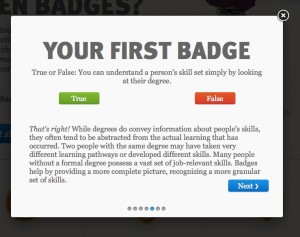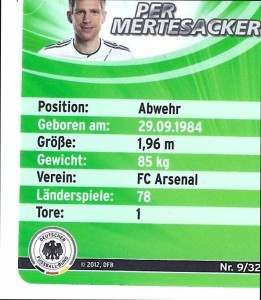Recognising learning with badges
Moving into uncharted waters: are open badges the future for skills accreditation?
I am ever more interested in the idea of badges in generla and the Mozilla Badges project in particular.
Having said this I think some of the pilot work has been on the wrong track – in providing accreditation for vocational competence in fields with pre-existing qualifications, rather than looking at areas lacking existing froms of recognition.
Badges should be about recognising learning. And it is probably more important in motivating learners that they are able to recognise their own learning. So I see badges as an extension tot he assessment for learning movement. In this respect the sample badge on the Mozilla Open Badges project site is unhelpful. I know it is up to the provider to determine the forms of assessment and that Mozilla does not determine who can become a provider. But the example inevitably will influence how potential providers view badges. Assessment needs to be an active process, contirbuting both to the leaners’s understanding and facilitating the process fo recogniciton. Simple check boxes as in the example above do neither.
L like the Mozilla Backpack and obviously a great deal of effort is being put into developing a robust architecture. But just as important as the electronic badges is something learners can display. Jenny Hughes has suggested we should provide learners with a badge holder (at least for younger learners) and that they should be allowed to select one badge to wear to school each day.
The badges could look very similar to the popular football cards being distributed by German supermarkets. If youlook at the back of the card (below) thereis even space for several metadata fields.
In a follow up post I will discuss several practical ideas for piloting the badges.




The use of badges has value for people learning or who have learned, languages other than English. Speakers of Esperanto can wear a small green badge which encourages other speakers to interact with them. There is also a badge which shows you speak Welsh, although I know from experience that not all Welsh speakers wear one. These badges demonstrate a level of competence and a willingness to engage with other people.